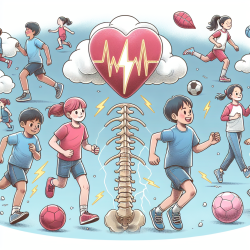Understanding the Impact of Pediatric Food Allergies on Mental Health
In the realm of pediatric care, food allergies present unique challenges not only to physical health but also to mental well-being. A recent pilot study titled The perceived impact of pediatric food allergy on mental health care needs and supports: A pilot study explores the psychosocial burdens faced by families dealing with food allergies and highlights the critical need for comprehensive support systems.
Key Findings of the Study
The study involved interviews and focus groups with 13 healthcare professionals, including pediatric allergists, allergy nurses, and dietitians. Three main themes emerged:
- Anxiety Among Families: Anxiety is a common comorbidity in families dealing with food allergies. This anxiety often stems from fears of accidental exposure and the proper use of epinephrine autoinjectors (EAIs).
- Limited Resources: There is a significant gap in resources to support the psychosocial and financial needs of these families. The study highlights the lack of time and resources in clinical settings to address these issues adequately.
- Empowerment Through Education: Education is a powerful tool in managing food allergies. The study emphasizes the need for better education for healthcare professionals, families, and the community to dispel misinformation and empower those affected.
Implications for Practitioners
For practitioners, this study underscores the importance of integrating mental health support into allergy care. Here are some actionable steps based on the study's findings:
- Incorporate mental health screening tools in allergy clinics to identify families in need of psychological support.
- Collaborate with general care pediatricians for regular psychosocial screenings.
- Advocate for the inclusion of social workers and psychologists specialized in cognitive behavior therapy in pediatric food allergy teams.
- Enhance nutrition support initiatives, such as dietitian-led grocery tours and meal planning sessions.
- Promote food allergy education in schools to raise awareness and reduce risks.
Encouraging Further Research
While this pilot study provides valuable insights, it also highlights the need for further research. Expanding the study to include a broader range of healthcare settings and geographical areas could provide a more comprehensive understanding of the challenges faced by families with food allergies.
Conclusion
The study reveals significant gaps in the support systems for families dealing with pediatric food allergies. By addressing these gaps through education, resource allocation, and mental health integration, practitioners can significantly improve the quality of life for these families.
To read the original research paper, please follow this link: The perceived impact of pediatric food allergy on mental health care needs and supports: A pilot study.










